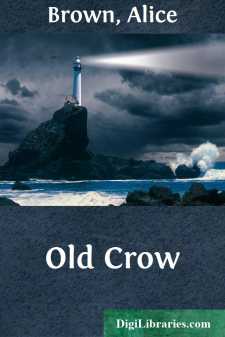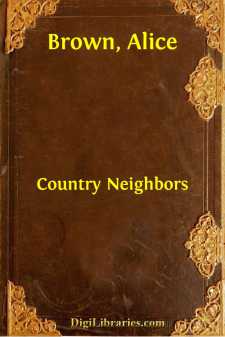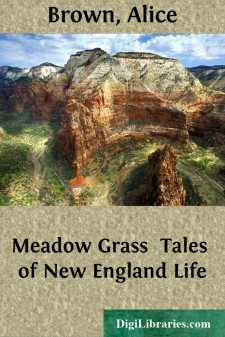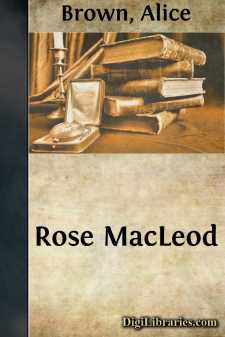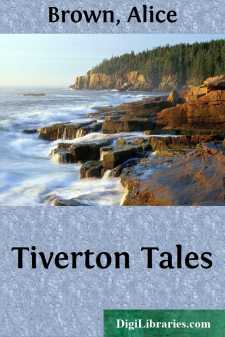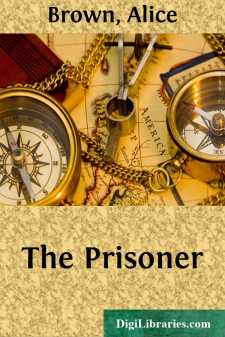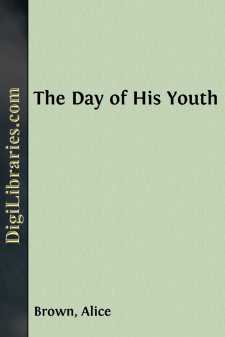Categories
- Antiques & Collectibles 13
- Architecture 36
- Art 48
- Bibles 22
- Biography & Autobiography 813
- Body, Mind & Spirit 142
- Business & Economics 28
- Children's Books 17
- Children's Fiction 14
- Computers 4
- Cooking 94
- Crafts & Hobbies 4
- Drama 346
- Education 46
- Family & Relationships 57
- Fiction 11829
- Games 19
- Gardening 17
- Health & Fitness 34
- History 1377
- House & Home 1
- Humor 147
- Juvenile Fiction 1873
- Juvenile Nonfiction 202
- Language Arts & Disciplines 88
- Law 16
- Literary Collections 686
- Literary Criticism 179
- Mathematics 13
- Medical 41
- Music 40
- Nature 179
- Non-Classifiable 1768
- Performing Arts 7
- Periodicals 1453
- Philosophy 64
- Photography 2
- Poetry 896
- Political Science 203
- Psychology 42
- Reference 154
- Religion 513
- Science 126
- Self-Help 84
- Social Science 81
- Sports & Recreation 34
- Study Aids 3
- Technology & Engineering 59
- Transportation 23
- Travel 463
- True Crime 29
Old Crow
by: Alice Brown
Description:
Excerpt
John Raven sat in the library of his shabby, yet dignified Boston house, waiting for Richard Powell, his nephew, whom he had summoned for an intimate talk. He was sitting by the fire making a pretense of reading the evening paper, but really he was prefiguring the coming interview, dreading it a good deal, and chiefly for the reason that there was an argument to be presented, and for this he was insufficiently prepared, and must be, however long it might be delayed. When he telephoned Dick to come he was at last armed with a bold conviction of being able to proffer a certain case to him (his own case, in fact); but, as these last moments went on, he weakened sensibly in any hope he might have had that Dick would be able to meet him from any illuminating viewpoint of his own. This was mid-winter, two years after the end of the War, where Dick and his uncle had worked in the Ambulance Corps to the limit of their capacities—Dick, no soldier, because of what seemed to him a diabolic eccentricity of imperfect sight, and Raven, blocked by what he felt to be the negligible disability of age. John Raven had, with the beginning of the War—which, as early as 1914 he had decided to be his war—made up his mind that although he was over forty and of a business training with inconsiderable excursions into literature, he wanted nothing so much as to get into the thick of it and the rough of it, so far as a man might who was past his physical best, and now he was back again, more fit than when he went, but at this present moment breathless at the realization that he had been up against life as it actually is, and that he found it a brute business and hated it. And this was not so much the horror of life in the field where, however the human heart cried out against the argument of desecrated flesh, the spirit could call mightily upon God, challenging Him to grant the chrism of fulfilment in return for this wild sacrifice of blood, as the horror of life when peace was exercising her rights in unbelievable ways. This he was going to explain to Dick, if he could manage it, while he set forth also his need of retreating from the active scene and leaving some of his formerly accepted duties on Dick's shoulders. As he sat there, gaunt, long, lean man, with a thin brown face and the eagle's look, a fineness of aquiline curve that made him significant in a dominant type, he fitted his room as the room fitted him. The house was old; nothing had been changed in it since the year when, in his first-won prosperity, he persuaded his mother up from the country and let her furnish it with her shyly modest taste, a sense of values that bade her keep within the boundary of the atmosphere she brought with her in good old pieces tenderly used. The room was dim, even by day, from these shadows of the brooding past, and the dull blue draperies at the windows, while they touched it to a more inspiriting tone, still spoke softly of the repose a man wanted when he escaped from the outer world to the assuagement of silence and his books.
To-night, when Raven had just about come to the conclusion that he could not possibly enter upon certain things with Dick because, although Dick elected to be a poet, there was no recognized form of words that would make him understand, and he'd better telephone him to put the interview off, he heard his voice in the hall, and, answering it, even breaking over it, like bright bubbles of a vocal stream, the voice of the girl they both loved, in ways becoming to their differences. Raven drew a comfortable breath. The intimate conference with Dick would have to be deferred, though he would quite as willingly have had Nan listen to it, except for the chance of her carrying it away with her, in that sympathetic tenderness of hers, to burden her young heart. Nan would have made quick work of understanding. She translated you as you went, and even ran ahead of you, in her haste, just as she sometimes cut in on your speech, not rudely rebuking you for being too slow, but in her eagerness to assure you she caught at the first toss. And then they came in, she full of anticipatory delight at seeing Raven, and Dick so full of her that he seemed not to know whether his uncle were there or not, except as an habitual figure in the furnishing of the room.
We must pause a dull minute, while they were projecting themselves into the scene, to find out how they looked and whether they also fitted the room and Raven. Nan, known to her larger world as Annette Hamilton, was a tall, slim, yet muscular girl, graced with as many physical contradictions as you are likely to imagine. While she stood for an instant before, puppy-like, precipitating herself upon Raven, her eyes crinkled up like Mary Seraskier's, and she showed a line of milk-white teeth. Altogether nature—for she had only the most inconsiderable help from art—had done her exceedingly well. She had the hurling impetuosities of the puppy when she found herself anywhere near persons familiarly dear to her; but, unlike the puppy, she was a thing of grace. Her hands and slim arms had a girl's loveliest contours, and yet, hidden somewhere under that satin flesh with its rose and silver lustre, were muscles serviceably strong. Her eyes were grey like Athena's, her hair fine and thick and pale, and her face altogether too irregular to talk about reasonably.
How is it possible to delineate Dick, even with all profuse generosity of comment, without suggesting that he was not of the type to please himself, or tagging him with a priggishness afar from him? He certainly was not the sort of hero his dramatic poems described with a choppy vigor of detail, and whom there is no doubt he would have chosen to resemble. But nature had given him a slimness and an actual grace he found, in his private self-scrutiny, almost girlish, nor could he wholly outwit and supplement her by the athletic training he never intermitted. Dick's face, too, he found much against him, being of a round solidity with a nose too thick and a mouth a thought too small....


